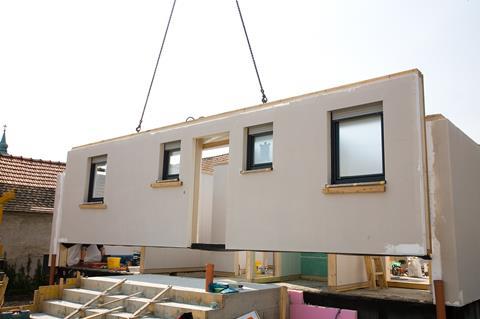In a speech at the end of June, Boris Johnson said: “This moment gives us a much greater chance to be radical and to do things differently… to build back better… to build back bolder. This infrastructure revolution will allow us to end that chronic failure of the British state: decade after decade we have failed to build enough homes.”

While emphasising the significance of infrastructure, the speech also stressed the importance of “getting things done” – a clear nod to learning from what has been done in expediting delivery of Nightingale Hospitals during the pandemic, for example.
Since the prime minister’s announcement, this has been the major topic for the RICS Infrastructure and Construction Market Forum, which I chair. While the priority is to get through the current disruption, the recession will hopefully be relatively short-lived. Moreover, this is an opportunity to do things differently by being more productive, effective and efficient – an opportunity to build back better and faster.
We are considering how our sector can help drive the growth and regeneration the country desperately needs, starting with infrastructure as the key economic stimulant. Productivity remains a concern, but there is an opportunity to accelerate changes to industrialise construction and align it more to manufacturing by adopting modern methods of construction.

The challenge we seem reluctant to tackle is adopting a greener approach to buildings’ whole lifecycles, from design and construction to operation and maintenance. We have now had 25 annual Conference of Parties – meetings of nations making up the United Nations Framework on Climate Change – yet still don’t have evidence of real action towards the changes our sector needs.
We need clients and those working in the built environment to work collaboratively to help embed ambitious net zero targets into environmental, sustainability and corporate governance policies, and translate these targets into everything we do by actioning, measuring and disclosing sustainability and social impact.
Big role for government
Government, as a client, has a huge role to play not only in setting the agenda, first by not reverting to lowest price, but considering broader value-for-money aspects.
It has the ability to create a new benchmark by doing things differently; setting a greener, carbon-neutral and carbon-capture agenda, but also developing an estate strategy that looks to embed green principles into areas such as adapting existing stock, refurbishing rather than rebuilding, replacement stock having a built-in net-zero pledge or looking at green energy capture and use.
CBRE UK launched a three-year strategy this year with sustainability at its core in a bid to create “exceptional client outcomes that shape a sustainable world”. Sustainability is also one of eight core pillars of the strategic focus for our business.
Many of our clients are looking at adopting greener policies, too. Many occupiers and investors are targeting net zero by 2030 and some even sooner, while sectors like transport and logistics are driving for electric fleets in similar timescales.
There is now a growing focus on the greener in “building back better, greener and faster”, which may prove to be one of the biggest benefits of the current forced disruption we are experiencing.
My hope is that we learn from this forced period of change and challenge. ‘Portfolio 2040’ a CBRE report written in 2018, addressed the idea of “preparing for a radically different real estate future”. It covered aspects such as: “permanent disruption”, whereby fixed assets become fluid; “digitised talent”, with ”more than 50% of employees being contingent workers”; and looked forward to a world where “while virtual working is commonplace, people still crave experience, provided by the mega-cities that have emerged. Green space and urban farms put sustainability at the forefront, and renewable energy has long been the norm, with buildings generating and sharing among themselves.”
This might not have come true (yet), but look at how far the dial has moved in the past six months.
As a sector, we should grab the opportunity provided by the prime minister’s drive to build back better, greener and faster to challenge our existing practices and do things differently. If we can seize this opportunity, we might well create utopia – or at least a legacy we can all be proud of.
Amanda Clack is an executive director and head of strategic advisory at CBRE






























No comments yet